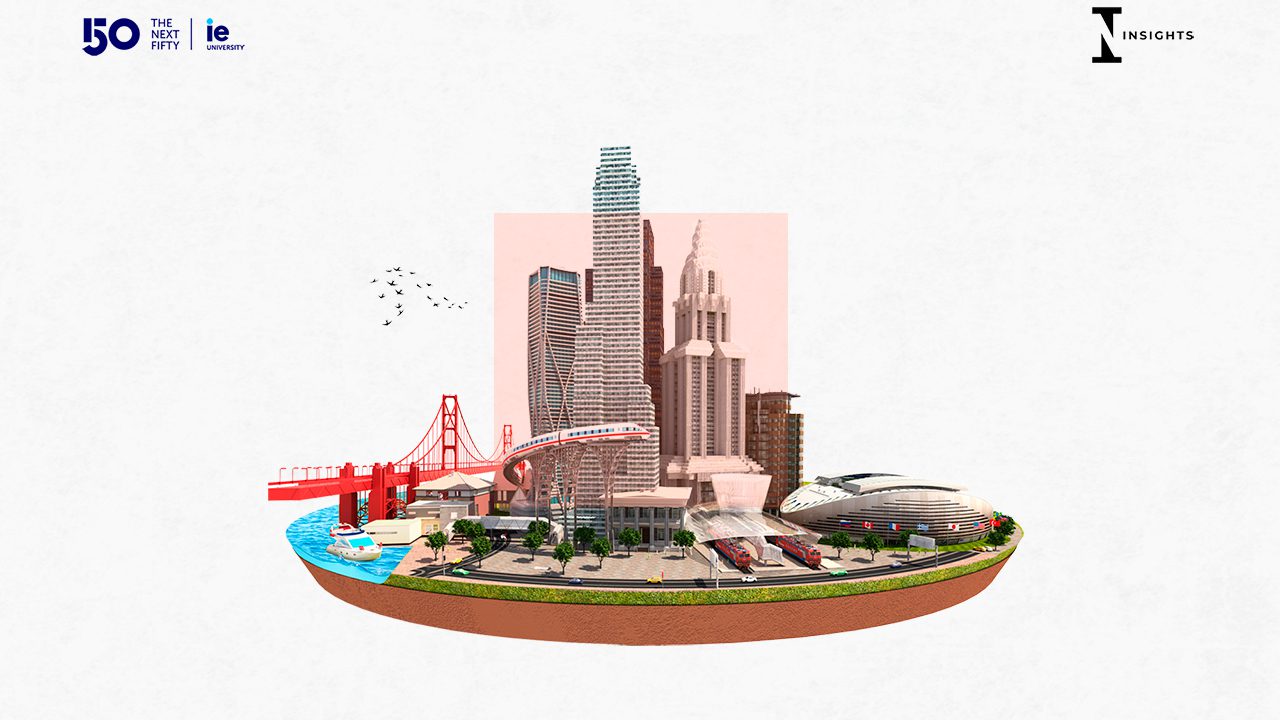© IE Insights.
Link copied
IE insights - IDEAS TO SHAPE THE FUTURE - Society

The Future of Cities
How could a post-car city work for its residents?
Almost every urbanist in Europe agrees that the future of cities should be largely car-free. I agree: cars have made cities more polluted and dangerous, have stopped children playing on the street, and they take up space that could be used for the essential purpose of city life, which is helping people meet. Imagine, for instance, all the encounters, health, and happiness that we could create by turning parking spaces into café terraces, mini-parks, vegetable gardens, ping pong tables, and so on.
But we need to think honestly about the people who will lose out from car-free cities. The deputy mayor of a big German city, which has been taking away parking spaces, muses: “People come up to me and ask, ‘Where can I park my car?’ I say, ‘Firstly, I don’t know. Secondly, it’s not really my problem.’” That’s an unsatisfactory answer to people who are now car-reliant. How can we make the new city work even for many of them?
They will benefit from the advent of the first autonomous vehicles likely to enter common use: driverless buses. The technology to create a driverless car that travels different routes all the time isn’t there yet. Such a vehicle would also be prohibitively expensive for one household, and would mostly just perpetuate the problem of cars taking space from people. But what is within technological reach – and much more useful – is driverless buses each programmed to travel one particular route, back and forth forever. Without a human driver, the cost of a bus approximately halves. That means you could have far more buses traversing the city, reducing the need for private car ownership.
But the most important new vehicle in the post-car city will be the electric bicycle. A decent one costs about €1,000, or about the price of two months’ car ownership, if you count the costs of the car’s depreciation as well as petrol and repairs. E-bikes work even for older people and those in poor health. And since e-bikes can comfortably travel at 25km an hour, they can do the journey from many currently car-reliant suburbs to downtown in about half an hour. That answers a charge often made by the car lobby: that bikes only work for hipsters in city centers. E-bikes extend the domain of cycling. No wonder they are spreading fast. In the Netherlands, the most advanced bicycle country, 57% of new bike sales in 2022 were of e-bikes. Then there are cargo e-bikes, which can carry 25 kilos of freight and could replace many delivery vans.
The car-free city will only be accepted if we can make it work for most of today’s drivers. Happily, that’s doable.
